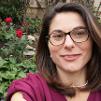On September 29, for the first time ever, Oxford held a European Researchers’ Night. It was an extraordinary opportunity for everyone to explore how research affects and changes our life.
Attended by over one million visitors, this unique event[1] happened simultaneously in 340 European cities. Only in Oxford, where this event was named Curiosity Carnival [2], 9,400 curious people came into town to take part.
For the success of this curiosity festival, Oxford involved more than 70 departments, 38 colleges, 6 permanent private halls, with over 1,800 academic staff, 5,300 research and research support staff, and 5,900 postgraduate research students. Through live experiments, games, stalls, debates, music, dances and pub-style quizzes, scholars discussed with the public some of the biggest challenges that face the 21st century world. It was then possible to listen and debate about the causes and consequences of poverty, the development of vaccines for major diseases, migration, globalization, climate change, problems posed by increasing pressures on natural resources and an ageing population.
The Oxford Institute of Population Ageing was actively involved in this international event, with a project on “Life events and health in older age." [3] Framed by an elegant room in the Ashmolean museum, we entertained the public with three activities. Firstly, we described in a few posters how the scientific community is approaching the topic of “population ageing”, with specific attention to the association between work/family events and health in older age. The number of articles that are appearing in mainstream journals have highlighted a strong association between previous life events and health outcomes in later life. For example, there is no doubt that having a long and happy relationship during life decreases the chance of suffering for depressive symptoms in older age or that a continuous work career helps to protect against poor health conditions. However, differences between genders, cohorts and countries are often important and the scientific community is still investigating.
During a secondary activity, we invited people to play with us! Based on data from SHARE[4] - a survey that provides information on health, social condition and employment of European individuals aged 50+ - and a statistical model, we measured the chances to feel good in later life. During that night, we asked people to enter into our program their information of work experiences, family composition and country of residence. The prediction of their level of health in later life then appeared on the screen.[5]
The third activity gave us additional chances to interact with the public. In order to understand how people define “old”, we asked them: “How old is old”?
More than 80 people stopped to discuss this question with an unexpected involvement of children. Our “night sample” included individuals between the ages of 6 to 78. Their answers ranged from 1 to 91 years old. It was interesting to note that, a 10 year old child defined the start of old age at 13. Indeed, he declared: “It is the time in which we become teenagers. We are not children any longer after this age. It is a big step in our lives”. … Impossible to contradict him! The majority of answers from participants strongly correlated with their age: younger people tended to say lower ages compared with adults and older individuals. Surprisingly, the oldest age was mentioned by a 13 year old boy, who affirmed: “My grandparents are still not old for me, since they provide me with everything I need. Therefore “old” is definitely after my grandparents’ age!”
Although the results obtained from our “night experiment” can be statistically questionable (and, of course, not representative of the population!), this experience confirmed the high interest around “ageing”. People might be attracted by ageing, because they are aware that it is an inevitable step in everyone's life. They want to be ready when the time comes and to live it in the best way possible. However, it is important to realise that ageing is “everywhere” and in “every moment”, since our conditions in the future are strongly associated with our situation and our choices at this moment. The person who answered that we start to age when we are a year old, definitely understood this concept.
[1]The European Researchers’ Night is funded by the European Commission under the Marie Sklodowska-Curie actions.
[2]“Researcher is feeding curiosity and answering questions”
[3]A big thank to Francesca Ghillani for her presence and her support during the all night!
[4]Börsch-Supan, A., Brandt, M., Hunkler, C., Kneip, T., Korbmacher, J., Malter, F., et al., 2013. Data resource profile: the Survey of Health, Ageing and Retirement in Europe (SHARE). Int. J. Epidemiol. 42, 992-1001.
[5] I am grateful to Martin Hadley for the important support in graphs visualization and to Maja Založnik for R advice.
About the Author:
Dr Sara Zella is a Research Fellow at the Oxford Institute of Population Ageing. Sara joined the Institute in 2016 to work with Professor Sarah Harper on the research project “The impact of different work/care life courses on women’s wellbeing and quality of life in early retirement and the welfare regimes which help shape this”.
Comments Welcome:
We welcome your comments on this or any of the Institute's blog posts. Please feel free to email comments to be posted on your behalf to administrator@ageing.ox.ac.uk or use the Disqus facility linked below.
Opinions of the blogger is their own and not endorsed by the Institute
Comments Welcome: We welcome your comments on this or any of the Institute's blog posts. Please feel free to email comments to be posted on your behalf to administrator@ageing.ox.ac.uk or use the Disqus facility linked below.













